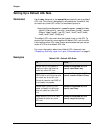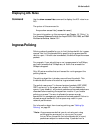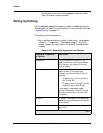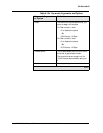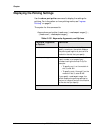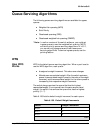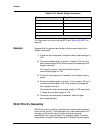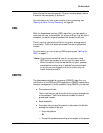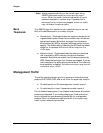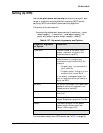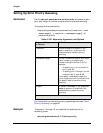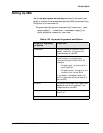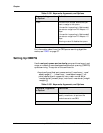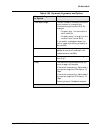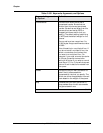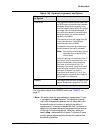
-38
Chapter
Avaya P550R, P580, P880, and P882 Multiservice Switch User Guide, v5.3.1
* Note: Avaya recommends that you do not set a port using
CBWFQ as the source port or mirror port for a port
mirror. When the switch limits the bandwidth of a port,
packets are subject to random drop. If packets from a
source port or mirror port are dropped, the mirror traffic
may not match the source traffic.
Burst
Thresholds
The CBWFQ algorithm has two burst thresholds that you can set.
Both of thresholds are set in a number of bytes.
■ Normal burst—This threshold sets the maximum size burst that
is guaranteed transfer. Bursts that are smaller than this size are
guaranteed transfer. Bursts that are larger than this size are
either serviced by WFQ or dropped (whichever action that you
specify). The default setting is servicing by WFQ and the default
weight for the queues.
Normal burst size can range from 0 to
15,000 bytes.
■ Maximum burst—This threshold sets the maximum size burst
that is serviced by WFQ once the normal burst has been
exceeded. Bursts that are smaller than this size are serviced by
WFQ. Bursts that are larger than this size are dropped. If you set
this threshold to the same value as normal burst, the maximum
burst capability is disabled.
The maximum burst can range from the
normal burst size to 15,000.
Management Traffic
The switch uses the following priority queues to forward protocol
packets (ARP, VRRP, OSPF, and so on) from the supervisor module:
■ On switches with an 80-series supervisor module, queue 7.
■ On switches with a Layer 3 supervisor module, queue 4.
Do not disable these queues. If you disable these queues, all protocol
packets are discarded. If you enable shaping on these queues, be
sure to allocate the queues enough bandwidth for management
packets. Failure to allocate enough bandwidth to the queue may
result in poor network performance.



